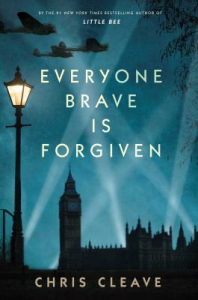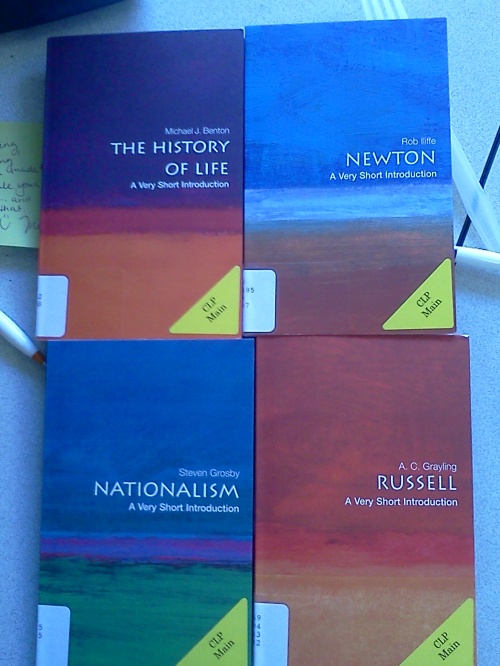…mathematics may be defined as the subject in which we never know what we are talking about nor whether what we are saying is true. People who have been puzzled by the beginnings of mathematics will I hope find comfort in this definition and will probably agree that it is accurate.
-Bertrand Russell from the essay “Mathematics and Metaphysicians”, printed in Mysticism and Logic (London, 1919. Longmans, Green, and Co.), which is in the public domain and is thus freely accessible through Google Books.
To a borderline innumerate person such as myself, the gist of the above quote — that mathematics is in any way unknowable and abstract — is a little shocking. The fundamentals of math that we begin to learn in grade school, and that many of us never really master, seem to be rigid enough. You have little bites of concepts, backed up with practice exercises that a teacher or knowledgeable parent or friend can glance at and determine whether it’s right or wrong. Then you have a test with a small collection of those minor concepts, and you get graded on that. And then you move on to the next set of concepts. Math, from this perspective, is quite knowable. After all, the answers are in the back of the book!
Bertrand Russell, an intellectual superstar of the first half of the 20th century, was driven by the pursuit of certainty, and he is almost certainly referring to himself in the above quote as a person who has been puzzled by the beginnings of mathematics. As a mathematician and logician, Russell relentlessly pursued definitive proof of the most basic concepts. To give an example, he and colleague Alfred North Whitehead famously took 300 pages of dense symbolic text in their influential Principia Mathematica to prove that 1 + 1 = 2. While that might strike many as a world-historic act of navel gazing, it was, in fact, this sort of questioning that led to the establishment of modern logic, without which algorithms and the computers that they run could not have been developed. In a sense, Russell and his peers made this blog possible by laying the conceptual groundwork for computer science.

That quest for finding a rational explanation for everything, and the ultimate impossibility of that task, is a central theme of Logicomix, an ambitious graphic novel by writer Apostolos Doxiadis, computer scientist Christos Papadimitriou, and artists Alecos Papadatos and Annie di Donna. I say ambitious because the authors set out to explain some pretty complex concepts — the sort of math and logic that Russell and Whitehead were working out in the Principia — to a common reader. This is a work of historical fiction, part biography of Russell, part semi-fictional history of science (semi-fictional because most of the events in the book did happen but not exactly as portrayed in the book), and part primer on logic.
To me, the most interesting thing about this book is how the authors set out to accomplish all of that. They do so using a pretty complex technique that involves three main narratives nesting within one another like Russian dolls. They begin the book with the authors in their studio discussing how they will tell this story; this creates the opportunity to explain some of the basic concepts that they will deal with in the Russell narrative, and the authors return to this thread throughout the book when there is a need for explanation or summary of what has happened in the historical narrative. These scenes sort of function like a chorus in a Greek play would.
The next layer features Russell giving a (fictional) speech at an American university at the very outset of World War II. This layer of the story sets us up for a discussion of the question of why we should care about this obscure and complex math — as the world begins to descend into a bloody war, students at the university demand that Russell, who was, in addition to being a mathematician, also a social commentator and a critic of war, take an absolute position against US involvement in the war. Russell’s speech to the students is the third narrative, in which he tells the story of his early life, his work as a young mathematician, and the development of the ideas for which he became famous. Throughout the story of Russell’s life, we return to him making the speech. In this way, we can situate the major theme of his story, that intellectual certainty is hard to come by because every idea is build upon other ideas whose foundation may not be particularly solid, into the real-life context of whether it is wise to take an unambiguous position on a complicated question. Russell ultimately refuses to take a firm stand on the question of whether the US should become involved in World War II, but rather encourages the protesters to think through the problem and come to their own conclusion.
I have been circling around Logicomix for several years. It was first recommended to me by a mathematician friend, who thought it might be a good window for me to get at least a little glimpse into the kind of questions he was grappling with in his research. More recently, my brother, a high school math teacher, told me that he lends his copy of this book to interested students and it often resonates with them. I’m glad that I picked this up when I did, because I happened to be able to consume it in two big gulps, reading on my back patio on two consecutive warm spring evenings. To me, this is the perfect summer read — it’s complex and thought-provoking, but at the same time not so dense as to be too daunting to tackle. Comics are a great way to try to push yourself intellectually; in fact, the “For Beginners” series was an early player in the graphic non-fiction game and have been popular for many years as a not-so-intimidating entree into tough concepts.
For me, however, Logicomix is a much more than just a palatable explanation of difficult philosophical and mathematical concepts. The explanation is there, but it is all in service of the story. Logic is simply another tool that we can use to understand the world around us. When Russell passed away in 1970, the term graphic novel had not yet been coined, and comics were largely considered to be light fare. With Logicomix, authors Doxiadis and Papadimitriou use the medium to beautifully connect history and math to make some powerful points about the nature of the world we live in. I daresay Russell would approve.
-Dan, whose latent interest in math could be an explanation for why I took Algebra I at least three times.
 Chris Cleave, whose Little Bee and Incendiary have become favorites of many library customers (and a whole bunch of library staff) will be stopping by the Main Library’s Lecture Hall for a talk and signing at 7 pm on Friday, May 13.
Chris Cleave, whose Little Bee and Incendiary have become favorites of many library customers (and a whole bunch of library staff) will be stopping by the Main Library’s Lecture Hall for a talk and signing at 7 pm on Friday, May 13.














